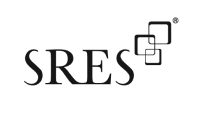South Shore June 2025
Lunenburg County Single-Family Market Analysis
June 2025
Stats from the Nova Scotia Association of REALTORS® (NSAR)
| Key Metrics | June 2024 | June 2025 | % Change |
|---|---|---|---|
| New Listings | 109 | 145 | +33.0% |
| Pending Sales | 63 | 61 | -3.2% |
| Closed Sales | 55 | 61 | +10.9% |
| Days on Market Until Sale | 33 | 41 | +24.2% |
| Median Sales Price | $415,000 | $440,000 | +6.0% |
| Average Sales Price | $423,186 | $510,267 | +20.6% |
| Percent of List Price Received | 97.5% | 98.1% | +0.6% |
| Inventory of Homes for Sale | 262 | 339 | +29.4% |
| Months Supply of Inventory | 5.6 | 6.4 | +14.3% |
Market Overview
Lunenburg County's June 2025 single-family market exhibited mixed signals—sustained pricing strength and improved seller realization coexisting with expanding inventory, weakening new contract formation, and extended absorption timelines. While closed transactions and pricing metrics remained healthy, forward-looking indicators suggest the market is transitioning from May's balanced equilibrium toward conditions favoring increased buyer leverage.
Key Divergence Signal
The combination of 33.0% new listing surge to 145 properties, 29.4% inventory expansion to 339 homes, and declining pending sales (-3.2%) creates a fundamental supply-demand imbalance. Months of supply reaching 6.4 months moves decisively into buyer-favorable territory (above the 4-6 month balanced range).
Supply Acceleration: Aggressive Inventory Build
New listing activity surged 33.0% year-over-year to 145 properties, the highest monthly listing volume in the dataset and a substantial sequential increase from May's 138 listings (+5.1%). This aggressive supply release indicates either:
- Sellers capitalizing on perceived pricing strength before anticipated softening
- Natural late-spring inventory peak before summer slowdown
- Motivated sellers entering the market ahead of anticipated rate or policy changes
Active inventory expanded 29.4% to 339 homes—a dramatic acceleration from May's 10.2% growth and the largest absolute inventory level in recent quarters. The 68-home sequential increase (271 to 339) indicates properties are accumulating faster than the market absorbs them, creating oversupply pressure.
Demand Formation: Concerning Contraction
Transaction activity reveals problematic divergence between closed sales and new pending formation:
- Closed sales increased 10.9% to 61 transactions
- Pending sales declined 3.2% to 61 properties
The closed sales improvement reflects May's strong 72-property pending pipeline converting to closings. However, the 3.2% decline in new pending sales—from 63 a year prior to just 61 currently—signals weakening forward demand despite expanding inventory and stable pricing.
This dynamic—healthy closings from prior pipeline combined with declining new contract formation amid surging supply—represents the classic early-stage warning signal for market softening. With only 61 properties under contract, July closings will likely decline to the mid-50s range, continuing transaction volume deceleration.
Absorption Extension: Velocity Deterioration Returns
Days on market increased 24.2% to 41 days, extending from June 2024's efficient 33-day timeline and holding flat versus May's 41-day absorption. While 41 days remains within reasonable parameters, the year-over-year deterioration combined with flat month-over-month performance despite seasonal tailwinds signals concerning trends:
- Properties are not moving faster despite peak summer demand period
- Absorption velocity failed to improve despite sellers maintaining asking prices
- The 33-day baseline from 2024 indicates current conditions operate with 24% more friction
Months of supply expanded to 6.4 months (+14.3%), decisively exceeding the 4-6 month balanced-market range. At 6.4 months, the market has transitioned to clear buyer-favorable conditions where inventory availability provides selection and negotiating leverage. This represents the highest months of supply reading in the recent dataset and a significant shift from May's 5.2-month near-balanced level.
Pricing Performance: Strength Despite Warning Signals
Price metrics delivered robust performance seemingly disconnected from emerging absorption concerns:
- Median sales price: $440,000 (+6.0%)
- Average sales price: $510,267 (+20.6%)
The 6.0% median appreciation represents sustained pricing strength in core market segments, with the $440,000 level approaching May's $473,250 but down from that peak. The dramatic 20.6% average price increase indicates June's transaction composition skewed heavily toward premium properties—likely luxury inventory accumulated during spring that cleared at preserved pricing.
The substantial divergence between median and average appreciation (6.0% vs 20.6%) definitively indicates segmented performance, with premium sales above $550,000 driving average pricing while core segments experienced more modest gains.
Negotiating Dynamics: Seller Power Sustained for Now
Sellers achieved 98.1% of list price, improved from 97.5% a year prior (+0.6%) and essentially maintaining May's strong 98.8% realization. This metric suggests that properties achieving sales continue to command near-asking prices, indicating sellers who adjusted expectations to market reality maintained negotiating strength.
However, this must be contextualized against declining pending formation and expanding inventory—while successful transactions preserved pricing power, the overall proportion of listings achieving sales likely declined given inventory accumulation. The 98.1% realization reflects properties correctly priced for current conditions rather than broad market strength.
Month-Over-Month Context: Inventory Overwhelms Demand
June's performance versus May reveals concerning trajectory shifts:
- New listings: 138 (May) → 145 (Jun), +5.1% continued acceleration
- Pending sales: 72 (May) → 61 (Jun), -15.3% sharp contraction
- Inventory: 271 (May) → 339 (Jun), +25.1% explosive growth
- Months supply: 5.2 (May) → 6.4 (Jun), +23.1% buyer market threshold crossed
The 15.3% sequential decline in pending sales formation combined with 25.1% inventory expansion represents a fundamental demand-supply imbalance. These diverging trajectories typically precede 2-3 months of continued market softening before equilibrium restoration.
Strategic Implications
For Sellers: June's data demands immediate strategic reassessment. While current transactions maintained 98.1% realization and $440,000 median pricing, forward indicators are decidedly negative. The 6.4 months of supply, declining pending formation, and 339-home inventory create buyer-favorable conditions that will intensify through summer absent demand catalysts. Sellers entering the market in July-August should price aggressively below recent comparables (3-5% under spring pricing) to avoid extended DOM and accumulated carrying costs. Properties priced at spring peak levels will likely experience 60-90 day marketing timelines with eventual price reductions. The window for premium pricing has closed—capture current buyers before conditions deteriorate further.
For Buyers: Market dynamics have shifted decisively in favor of buyer leverage. The 6.4 months of supply provides extensive selection, declining pending sales indicate reduced competition, and 41-day absorption suggests motivated sellers. Buyers should approach negotiations expecting 2-3% below asking price with favorable terms (inspection periods, closing flexibility, contingencies). The 339-home inventory creates urgency for sellers rather than buyers—take time for thorough due diligence and multiple property evaluations. Premium properties above $550,000 may offer greatest negotiating leverage given their average price strength likely required significant time on market.
Market Outlook: June marks a clear inflection point from balanced to buyer-favorable conditions. With only 61 pending sales and 339 active listings, July will see continued inventory accumulation and likely further pending sales decline as summer vacation period dampens buyer activity. Expect months of supply to approach 7.0+ months by August, with days on market extending to 50-60 days. Pricing will likely show first year-over-year declines by Q3 2025 as accumulated inventory creates competitive pressure. Stabilization unlikely before September-October when seasonal factors reduce supply and returning buyers provide demand support.
Comparative Analysis: Dramatic Year-Over-Year Shift
June 2025 versus June 2024 reveals fundamental market transformation:
- 2024: 262 homes, 5.6 months supply, 33-day absorption = tight, seller-favorable market
- 2025: 339 homes, 6.4 months supply, 41-day absorption = loose, buyer-favorable market
The 77-home inventory increase (+29.4%) combined with extended absorption represents a complete market regime change. What operated as a competitive, urgency-driven environment a year ago has transitioned to conditions providing buyers extensive selection and negotiating power.
Critical Forward Indicator: July Pipeline Weakness
The most concerning aspect of June's data is the forward pipeline. With only 61 pending sales and typical 30-45 day closing timelines, July will process approximately 55-60 closed transactions—down from June's 61 closings and representing continued volume deceleration. Meanwhile, the 339-home active inventory will likely grow to 350+ homes as typical July listing activity adds 120-130 new properties while closings remove only 55-60.
This dynamic—declining closings combined with seasonal listing flow—will push months of supply above 7.0 months by late July, definitively establishing buyer-market conditions and creating downward pricing pressure as sellers compete for limited buyer attention.
.jpg)











